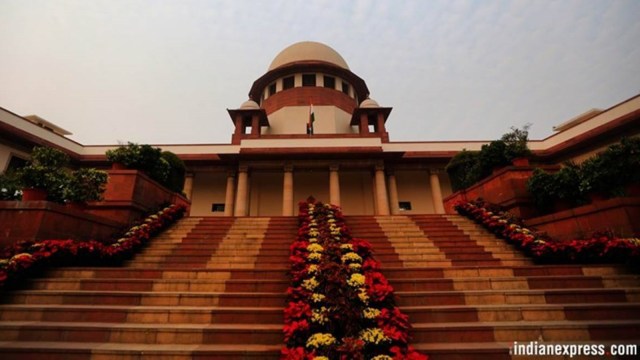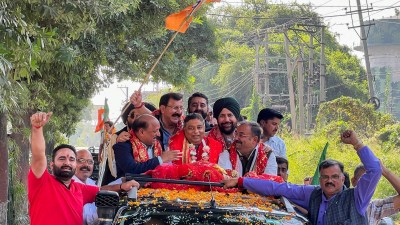‘Insult to memory of victims’: Supreme Court order on Oting killings reopens old wounds
The Naga Students' Federation has written to Union Home Minister Amit Shah demanding sanction for prosecution in the case and revocation of AFSPA in the state.
 Referring to this, the Supreme Court ruled on September 17 that “the proceedings from the impugned FIRs deserve to be quashed”.
Referring to this, the Supreme Court ruled on September 17 that “the proceedings from the impugned FIRs deserve to be quashed”.
The Supreme Court’s decision this week to close all proceedings in an FIR against 30 Army personnel, allegedly involved in the killing of six civilians of Nagaland’s Oting village three years ago, has shattered the residents’ hope for justice, with many calling it an “insult to the memory” of the victims and their families.
The Naga Students’ Federation has written to Union Home Minister Amit Shah demanding sanction for prosecution in the case and revocation of AFSPA in the state. “The Oting incident is not merely an isolated act of violence but a reflection of a systemic injustice that has persisted under the draconian Armed Forces Special Powers Act, 1958… It is time the Government of India revokes AFSPA from the Naga homeland. The Oting incident stands as a glaring example of how AFSPA is used to shield perpetrators of violence against innocent civilians, deepening the wounds of conflict and alienation,” the students’ body said.
On December 4, 2021, a unit of 21st Para Special Forces of the Army, in a case of “mistaken identity”, fired at a pickup truck in which eight miners from Oting in Mon district were travelling. While six died on the spot, two survived. Seven more civilians, and one security personnel, died in retaliatory violence.
Following the incident, which caused widespread public outrage in the state and in the region, the Nagaland government formed a Special Investigation Team (SIT) to probe the matter. The SIT in May 2022 filed a chargesheet indicting all 30 personnel of the 21st Para SF unit, including a Major-rank officer, under IPC sections related to murder, attempt to murder and destruction of evidence, among others, pending prosecution sanction. However, without the sanction to prosecute from the Centre — a precondition to initiate action against security personnel in areas which are under AFSPA — the legal process could not proceed further. In February 2023, the Department of Military Affairs under the Ministry of Defence denied sanction for prosecution.
Referring to this, the Supreme Court ruled on September 17 that “the proceedings from the impugned FIRs deserve to be quashed”.
The court’s decision has shattered the hopes of the people awaiting justice in the case. “The horrific incident, which claimed the lives of our fellow villagers, remains a painful scar in the hearts of the entire community. We had hoped for justice and accountability for the senseless and brutal loss of our people. This decision to absolve those responsible without holding them accountable is not only disheartening but also an insult to the memory of the victims and their grieving families,” the Oting Students’ Union said in a statement.
“The people of Oting, and Nagaland as a whole, have always believed in the judiciary’s role in upholding justice, especially for the most vulnerable… We are left with deep sorrow and a sense of abandonment, as the closure of the case fails to address the injustice and trauma inflicted on our community,” it said.
Earlier this year, the Nagaland government had challenged the Centre’s refusal to grant sanction for prosecution in the Supreme Court. However, it has not issued any statement on the recent development. The state government’s spokespersons, Temjen Imna Along and C.L. John, did not respond to calls and messages seeking comment.
Keapwang Konyak, a resident of Oting and a friend of some of those who had been killed in the incident, said they had hoped that the state and the Central governments would be able to help them. “We were hoping that something would be done by the government to make sure that law and order takes its course… We thought the state could do something,” he said.
The NSCN (IM), the largest rebel outfit in Nagaland, called the decision a “denial of justice to the victims.”
The Army had initiated an independent Court of Inquiry to investigate the incident. In May 2022, it said it had completed its inquiry but had not decided on the action forward. In December 2022, top Army sources told The Indian Express that they could not “proceed” in the matter as the case was “sub judice”.







